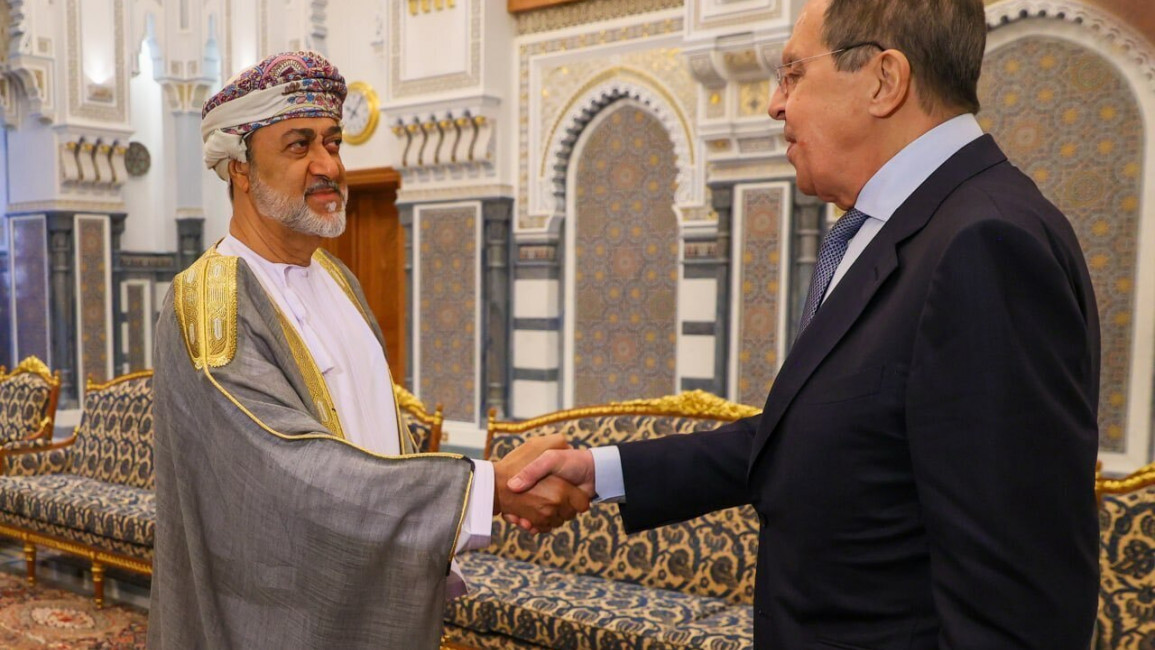Russian FM Lavrov asks Oman to help Syria regime return to Arab League despite horrific abuses
Russian Foreign Minister Sergey Lavrov on Wednesday asked Oman to have the Syria regime returned to the Arab League while on a visit to the Gulf state, a decade after it was suspended for mass crimes against civilians.
At a press conference with Omani counterpart Sayyid Badr Albusaidi, Lavrov said Oman and Russia shared a "common vision... on many international issues".
Syria's Arab League membership was suspended in 2011 after the regime began its bloody crackdown on protests, which resulted in hundreds of thousands of civilians being killed following an opposition uprising.
"Moscow appreciates Muscat's objective and balanced position on the Syrian crisis, and the Sultanate can play a role in returning Syria to the Arab family," The New Arab's sister site Al-Araby Al-Jadeed quoted Lavrov as saying.
Some Arab countries - including Egypt and the UAE - have called for Syria to be readmitted to the League despite the Assad regime's brutal crackdown. This has included barrel bombings, starvation sieges, chemical attacks, and massacres.
The Arab League's secretary-general said in March that there had not yet been a consensus on allowing Syria to return to the body.
Oman is seen as having a neutral foreign policy, earning it the nickname "Switzerland of the Middle East". It has been condemned for maintaining diplomatic ties with the Syrian regime throughout the war, despite Assad's horrific human rights record.
More than 500,000 Syrians have been killed since the 2011 uprising began, the vast majority civilians killed in regime attacks.
Around 150,000 Syrians have been detained since 2011, in regime 'dungeons' where thousands are feared dead due to torture, executions, and lack of food and medical care.
The Russian FM travelled to Oman after making an unannounced visit to Algeria earlier this week.
There, he discussed bolstering Algeria and Russia's military and economic ties with senior officials.
Russia has been left increasingly diplomatically isolated since it invaded Ukraine in February, but still enjoys strong ties with many Middle Eastern and North African nations.


![President Pezeshkian has denounced Israel's attacks on Lebanon [Getty]](/sites/default/files/styles/image_684x385/public/2173482924.jpeg?h=a5f2f23a&itok=q3evVtko)



 Follow the Middle East's top stories in English at The New Arab on Google News
Follow the Middle East's top stories in English at The New Arab on Google News


